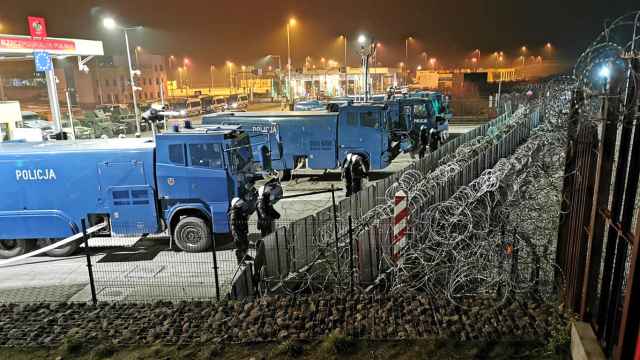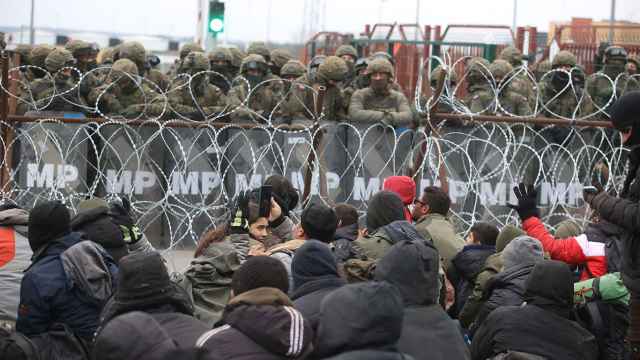Belarusian banks are preparing for tougher Western sanctions by signing up to Russia’s alternative to the SWIFT, the international financial messaging network that underpins the global banking system, Russia’s Moskovsky Komsomolets tabloid has reported.
Russia’s System for Transfer of Financial Messages (SPFS) has more than 400 domestic users — practically every licensed Russian lender — but is used by only 38 banks from nine other countries. Developed in 2014, SPFS is designed to keep banking transactions in the event of Western sanctions disconnecting Russia from SWIFT.
Denis Baryshkov, who heads the Russian Central Bank’s national payment system development and regulation division, said Belarusian banks have integrated with SPFS and will start using it in 2022, according to Moskovsky Komsomolets.
“It can be said that Belarusian banks have already begun to prepare for disconnection from the international payment system,” the tabloid wrote.
While Russia’s SPFS can be three times cheaper than SWIFT, the network itself is only operational during weekday working hours and its messages are limited to 20kb in size. SWIFT, meanwhile, works 24/7 and allows 10mb to be transmitted across its network.
The Belgium-based Society for Worldwide Interbank Financial Telecommunications (SWIFT) network also links more than 11,000 banks operating in at least 200 countries and territories around the world.
The system, which facilitates secure and fast communications between financial institutions is often mislabeled a “payments system,” but it is actually a notification and communications network.
Russian officials and banking figures have talked up the dangers of being disconnected as the idea has gained popularity following a range of actions that has caused relations between Moscow and the West fall to Cold War-era lows.
A Message from The Moscow Times:
Dear readers,
We are facing unprecedented challenges. Russia's Prosecutor General's Office has designated The Moscow Times as an "undesirable" organization, criminalizing our work and putting our staff at risk of prosecution. This follows our earlier unjust labeling as a "foreign agent."
These actions are direct attempts to silence independent journalism in Russia. The authorities claim our work "discredits the decisions of the Russian leadership." We see things differently: we strive to provide accurate, unbiased reporting on Russia.
We, the journalists of The Moscow Times, refuse to be silenced. But to continue our work, we need your help.
Your support, no matter how small, makes a world of difference. If you can, please support us monthly starting from just $2. It's quick to set up, and every contribution makes a significant impact.
By supporting The Moscow Times, you're defending open, independent journalism in the face of repression. Thank you for standing with us.
Remind me later.






